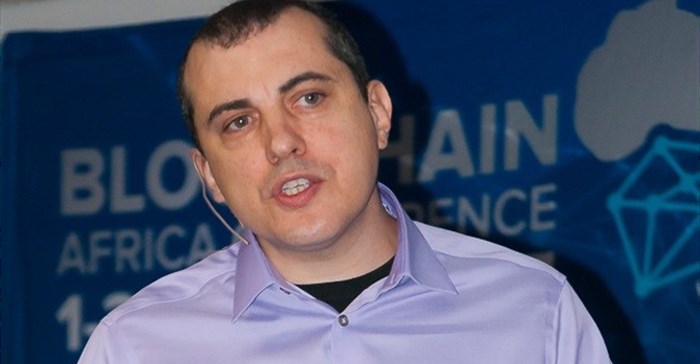At this point, blockchain protagonists are not regarded as early adopters, but rather the lunatic fringe. And while this technology has the ability to change the world, the potential is still not clear to most.

Andreas Antonopoulos
“The early adopters will come in five years,” Andreas M Antonopoulos told delegates attending the third Blockchain Africa conference in Gauteng recently.
“In the long run, the vision of this technology is far beyond money and when it is delivered, it will not be so people can open a bank account; it is about debanking all of us, not banking the unbankable,” he adds.
Borderless transactions
A technologist and serial, Antonopoulos said blockchain is still being figured out. “People are grasping in the dark at what appear to be unsolvable problems. But they are not, and once they are solved, this technology will change the world and help humanity.”
Open is the key word, he explained. “The technology offers borderless transactions without third parties through a network, which is trusted because it is neutral and does not serve anyone’s goals.
“In these systems, there are only valid or invalid transactions, not good or bad, spam or authorised or legal or illegal. It offers radical neutrality and is censorship resistant.”
It is the software, not an individual verifying a transaction. Therefore, the platform can be trusted as a neutral arbitrator, not influenced by anyone or third party.
For a system to be all of this, it has to be able to defend these properties. So, it must make it impossible for anyone or anything to interfere with the transaction.
No skin in the game
Compared to existing financial institutions, blockchain has no skin in the game, he said.
“The banks tell us to trust them, but where were they in 2008? Removing the clearing house and replacing it with a cartel of the same market makers who have manipulated and compromised every market in history, is not a model for openness and transparency. It is not blockchain,: Antonopoulos said.
Prerequisites for success
Three things need to be in place for blockchain to be more than just a promising technology - a viable market needs to be identified, the timing needs to be right and then, the third, and most important, the sequencing.
These are prerequisites to success, he says. “Facebook would not have happened in 1992, as there was not dense internet, and no mobile device. People barely had email. You cannot build a system when you still have a low density. It is only when there is enough density that you can do interesting things.”
Many applications are still at infancy stage, but that does not mean that they will not happen. We will see this play out, he added. “Now, there is not enough broad adoption and it takes a long time to get to adequate levels.”
Security is being driven by technology. “We are building a new world with a model that is open and accessible to everyone. Decentralised security is replacing the current model where the institution at its centre.”














































